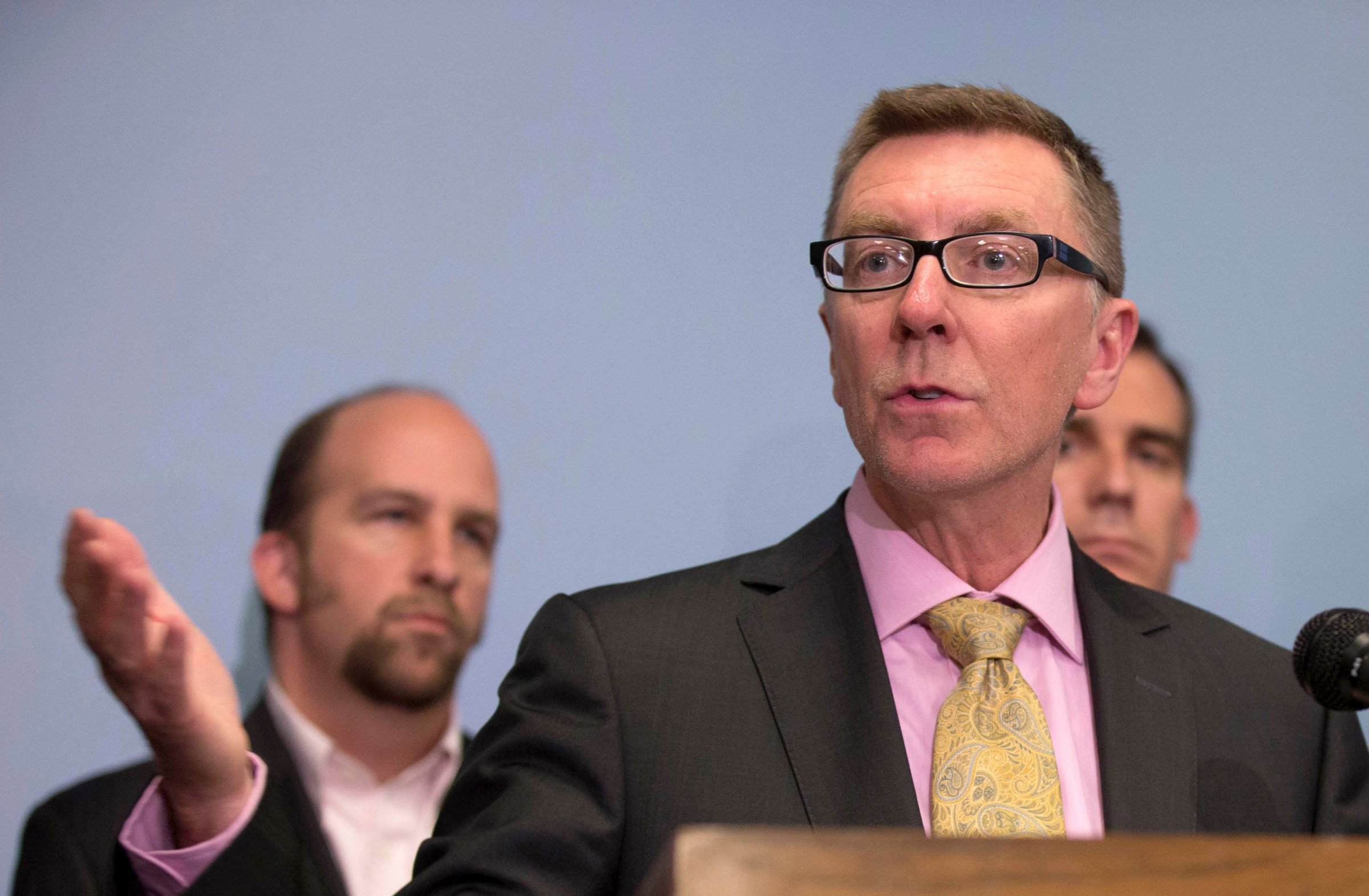
For all that an iPad might be able to offer a growing mind, the device is missing a component many students would consider essential for coursework: a keyboard. A failure to recognize the importance of that omission is just one of many things that went wrong when the head of the Los Angeles public schools embarked on a plan in 2013 to get iPads in the hands of all 650,000 students in the system.
Two months after abandoning the heavily-publicized effort, John Deasy, superintendent of the Los Angeles Unified School District, stepped down Thursday. The school board reportedly sent him packing with $60,000 in severance pay and appointed an 82-year-old former superintendent to run the second largest school district in the country in his place.
Deasy’s tenure had been troubled for some time. Test scores and graduation rates went up under his leadership, but his aggressive push for more teacher accountability rankled the teacher’s union. And recent municipal elections left him with fewer allies on the school board. Beyond the political backdrop, however, Deasy’s downfall can be traced, in part, to his devotion to the cult of Cupertino.
When Deasy promised to give every public school student under his care an iPad, it earned him hopeful, glowing praise. The iPad proposal seemed like a forward-thinking, even glamorous, way to transcend the socioeconomic barriers to academic achievement.
As critics have since pointed out, however, iPads are more expensive than many tablets from other manufacturers that are used by school districts. They also lack keyboards and other components many students find useful—like drives and USB ports—that are available on laptops. When some iPads were distributed to students during an early phase of the LAUSD program, some hacked the devices — which the district had said were meant solely for academic work — to enable more general use. And when the program began, some schools did not yet have proper wifi infrastructure that would allow all their students to be online at the same.
As more school districts adopt digital technology, Apple is pushing hard to become the go-to vendor for the products they need to make it happen. Deasy lent a hand to this effort, appearing in a 2012 Apple promotional video touting the iPad’s potential as an educational tool. In July, the company announced it had sold 13 million iPads for educational use worldwide.
But to critics, Deasy’s enthusiasm for Apple crossed a line when it was revealed earlier this year that he had been in close contact with Apple and Pearson, which makes software that was to be installed on hundreds of thousands of LAUSD iPads, long before the companies secured LAUSD contracts as part of an effort that was to cost the district more than $1 billion. The relationships between Deasy, one of his a deputies and executives at the companies were revealed in e-mails released to local media outlets. In one 2012 email before Apple was awarded an initial $30 million contract to provide iPads to LAUSD students, Deasy wrote to the CEO of Pearson, “I had an excellent meeting with Tim at Apple last Friday,” referring to Apple CEO Tim Cook. “The meeting went very well and he was fully committed to being a partner.”
Deasy recused himself from the formal bidding process because he owned Apple stock and has said communication with potential vendors is common and not wrong. The L.A. district attorney’s public integrity division investigated and found no criminal charges were warranted. Still, critics said the whole episode left the impression that LAUSD was biased in favor of awarding a contract to Apple, leaving bids from competing technology companies at a disadvantage.
This summer, under intense pressure over the Apple and Pearson deals, Deasy suspended LAUSD’s contract with Apple and said the district would restart its bidding process. In a memo to the school board, Deasy said the decision to halt LAUSD’s contract with Apple would “enable us to take advantage of an ever-changing marketplace and technology advances.”
It proved to be too little, too late, for a hard-charging education reformer with a soft spot for shiny tech.
Read next: Apple Unveils Its Thinnest iPad Ever
More Must-Reads From TIME
- Dua Lipa Manifested All of This
- Exclusive: Google Workers Revolt Over $1.2 Billion Contract With Israel
- Stop Looking for Your Forever Home
- The Sympathizer Counters 50 Years of Hollywood Vietnam War Narratives
- The Bliss of Seeing the Eclipse From Cleveland
- Hormonal Birth Control Doesn’t Deserve Its Bad Reputation
- The Best TV Shows to Watch on Peacock
- Want Weekly Recs on What to Watch, Read, and More? Sign Up for Worth Your Time
Contact us at letters@time.com